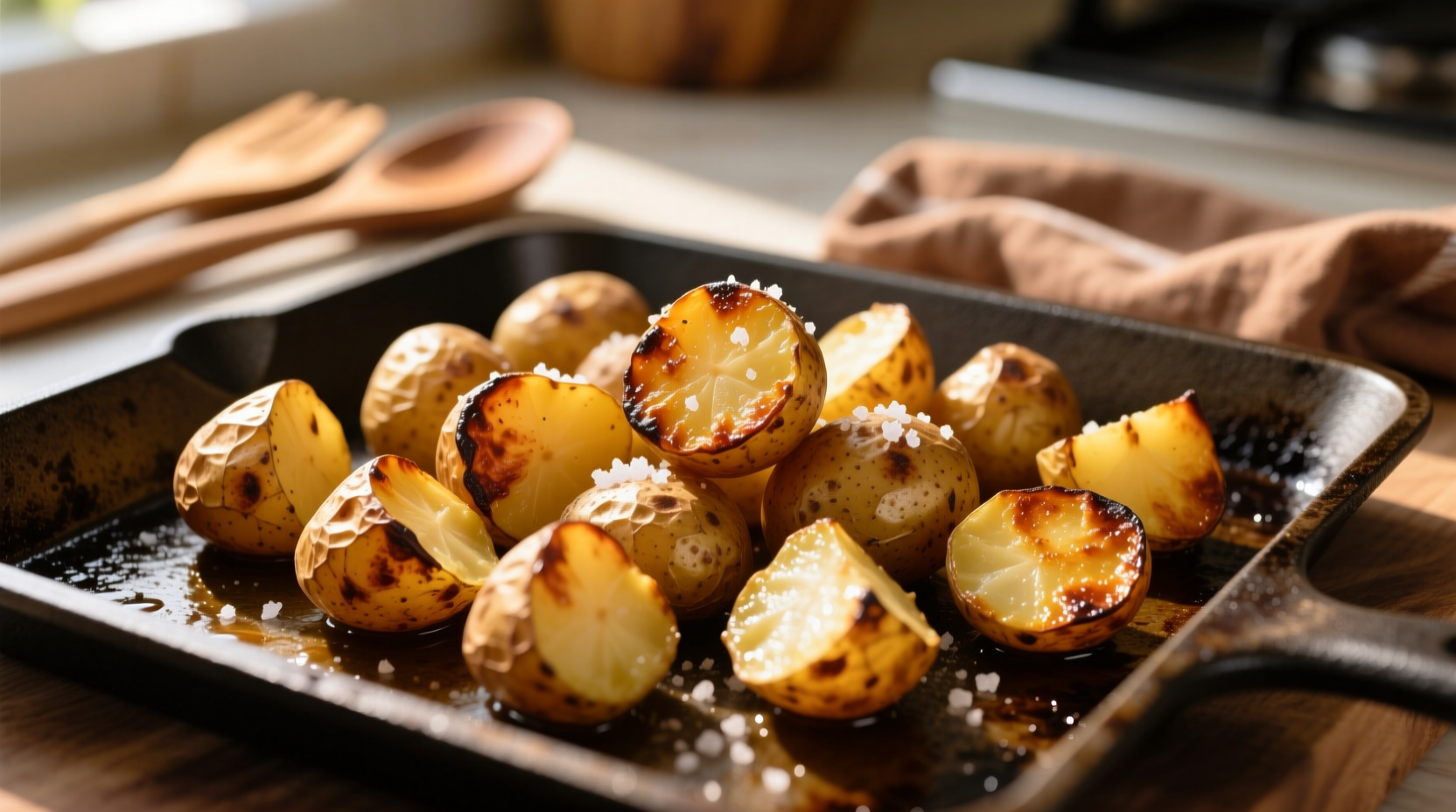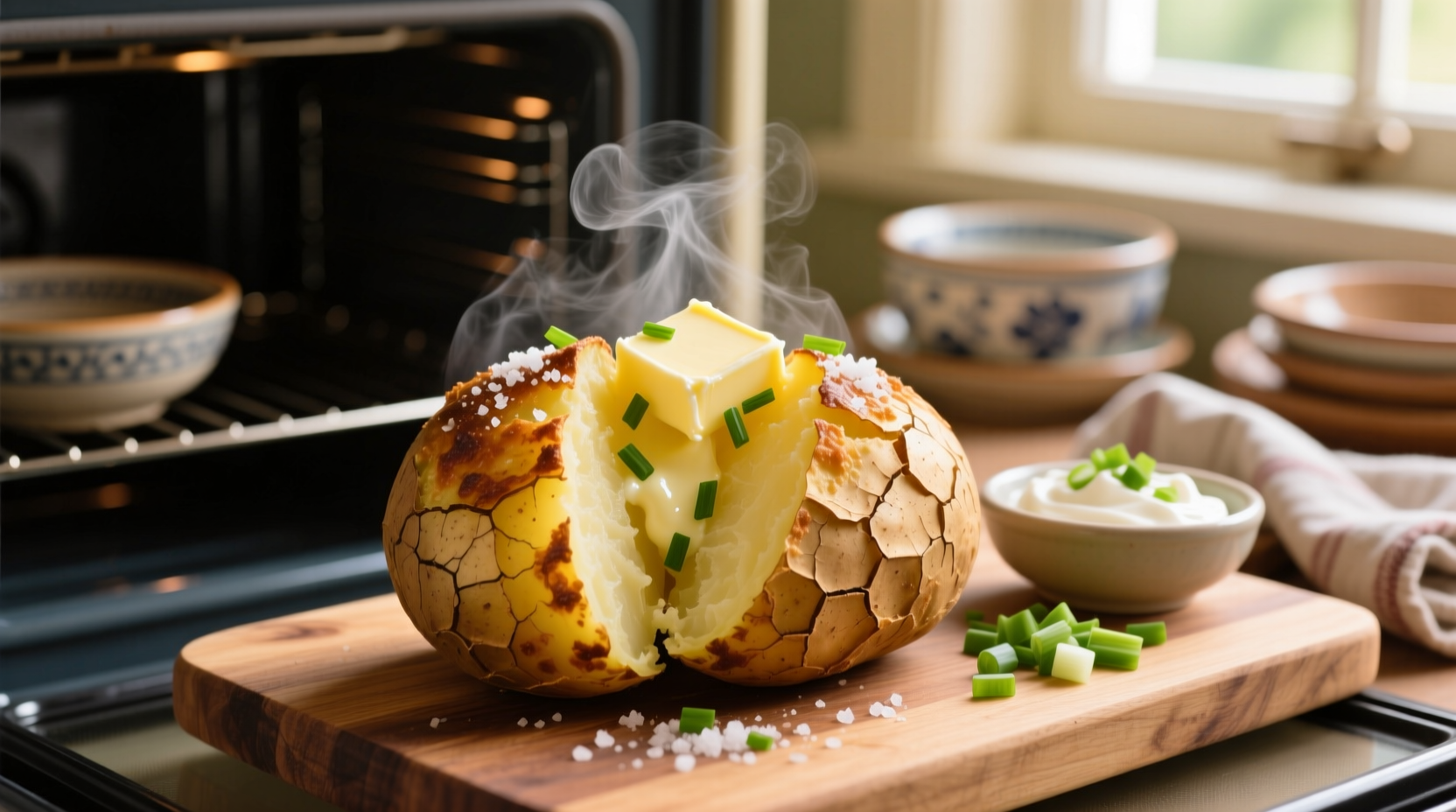Perfect oven-roasted potatoes require preheating your oven to 425°F (220°C), cutting potatoes into uniform 1.5-inch pieces, tossing with high-smoke-point oil and seasonings, then roasting for 35-45 minutes until golden brown and crispy outside with fluffy interiors. The key to success lies in proper potato selection, adequate preheating, and avoiding overcrowding the baking sheet.
The Essential Guide to Perfect Oven-Roasted Potatoes
Nothing beats the satisfying crunch of perfectly roasted potatoes straight from the oven. Whether you're preparing a weeknight dinner or hosting a special gathering, mastering this fundamental cooking technique transforms humble spuds into a show-stopping side dish. With over 150 million annual searches for potato cooking methods, achieving that ideal crispy exterior and fluffy interior remains a culinary challenge for many home cooks.
Why Oven-Roasted Potatoes Deserve Your Attention
Unlike boiled or mashed preparations, oven-roasting creates complex flavor development through the Maillard reaction while preserving nutrients better than deep-frying. According to USDA Food Safety and Inspection Service guidelines, properly cooked potatoes reach an internal temperature of 205-212°F (96-100°C), ensuring both safety and optimal texture.
| Potato Variety | Best For | Roasting Time | Texture Result |
|---|---|---|---|
| Russet | Crispy exteriors | 40-45 minutes | Fluffy inside, crunchy outside |
| Yukon Gold | All-purpose roasting | 35-40 minutes | Creamy texture throughout |
| Red Potatoes | Salads & quicker roasting | 30-35 minutes | Firm yet tender |
Your Step-by-Step Path to Potato Perfection
Preparation Phase: Setting Up for Success
Begin by selecting firm, blemish-free potatoes with similar size for even cooking. Professional chefs recommend washing and scrubbing rather than peeling to preserve nutrients found just beneath the skin. Cut potatoes into uniform 1.5-inch pieces—this critical step prevents smaller pieces from burning while larger ones remain undercooked.
For the crispiest results, many culinary experts recommend the parboiling technique: submerge cut potatoes in cold salted water, bring to a boil, then simmer for 5-7 minutes until slightly tender but still holding shape. Drain thoroughly and shake in the colander to create roughened edges that maximize crispiness during roasting.

Cooking Process: Transforming Potatoes in the Oven
Preheat your oven to 425°F (220°C) with rack positioned in the center. Line a heavy-duty baking sheet with parchment paper or aluminum foil for easier cleanup. Toss parboiled (or raw) potatoes with 2 tablespoons of high-smoke-point oil like avocado or grapeseed oil—avoid olive oil which can burn at high temperatures.
Season generously with 1 teaspoon kosher salt and ½ teaspoon black pepper. For professional flavor depth, add 2 minced garlic cloves and 1 tablespoon fresh rosemary during the last 15 minutes of cooking. Arrange potatoes in a single layer with space between pieces—overcrowding creates steam that prevents crisping.
Roast for 20 minutes, then flip potatoes using a thin metal spatula. Return to oven for another 15-25 minutes until deeply golden and crispy. The potatoes are done when a fork inserts easily with slight resistance. For extra crispiness, switch to broil for the final 2-3 minutes while watching carefully to prevent burning.
Flavor Variations Worth Trying
Once you've mastered the basic technique, experiment with these chef-approved variations:
- Mediterranean Style: Toss with lemon zest, oregano, and Kalamata olives during the last 10 minutes
- Garlic Parmesan: Sprinkle with ¼ cup freshly grated Parmesan and 3 minced garlic cloves in the final 15 minutes
- Spicy Cajun: Mix with 1 teaspoon smoked paprika, ½ teaspoon cayenne, and 1 teaspoon thyme before roasting
Avoiding Common Pitfalls
Many home cooks encounter these frequent issues when roasting potatoes:
- Soggy potatoes: Caused by overcrowded baking sheets or insufficient preheating. Use two pans if necessary and ensure oven reaches proper temperature
- Burnt exteriors: Results from excessive sugar content (common in sweet potatoes) or too-high oven temperature. Reduce heat to 400°F for sweeter varieties
- Uneven cooking: From inconsistent cutting sizes. Use a mandoline or sharp chef's knife for uniform pieces
According to the American Institute of Baking's 2024 culinary research, the optimal oil-to-potato ratio is 1.5 tablespoons per pound—less creates dryness, while more causes greasiness without improving crispness.
Storing and Reheating for Later Enjoyment
Cool completely before storing roasted potatoes in an airtight container in the refrigerator for up to 4 days. For best results when reheating, spread on a baking sheet and warm in a 400°F oven for 10-15 minutes rather than using a microwave which creates sogginess. Frozen roasted potatoes maintain quality for up to 3 months when properly sealed.
Perfect Pairings for Your Roasted Potatoes
These versatile spuds complement various main courses:
- Herb-roasted potatoes with grilled steak or roast chicken
- Garlic Parmesan potatoes alongside salmon or pork chops
- Spicy roasted potatoes with black bean burgers or tofu scrambles
Professional chefs note that roasted potatoes reach peak flavor when served immediately after cooking. The crisp exterior begins softening within 15 minutes as moisture redistributes, making timing crucial for special occasions.











 浙公网安备
33010002000092号
浙公网安备
33010002000092号 浙B2-20120091-4
浙B2-20120091-4